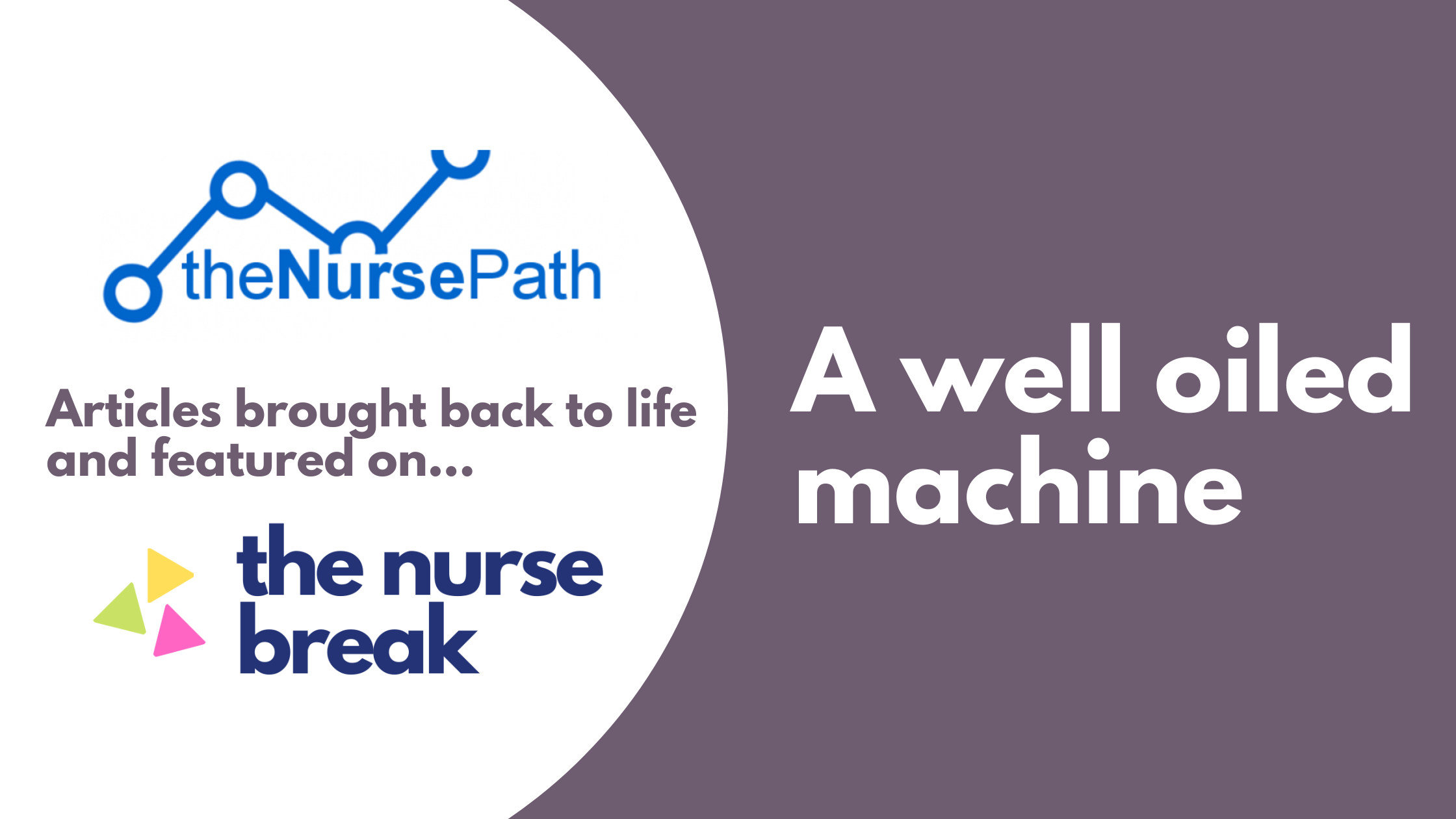Republished article of The Nurse Path. Find more of The Nurse Path here. Check out our other articles and guest bloggers here. Want to write an article? Go Here
The following story is a guest post from Nurse Ruth.
In the midst of the chaos someone calls to me “Ruth, slow down”.
I am kneeling on the edge of his bed, leaning over his body, with the palm of my hand pressed against his chest. His lifeless body flails as I push hard on his sternum. I am surrounded by a united force of professionals with a solitary goal: to restore his life.
This is tiring work. I have no breath to count out loud. I am listening as orders and requests are made, but I am focussed to the sound of just one voice. The one that keeps saying “charging…clear”!
I quickly relinquish my precarious position on the edge of the bed and lean back against the wall. My legs are shaking and my heart is racing, perhaps faster than his! An electric shock is effortlessly delivered to his quivering heart.
We wait. “No output, resume compressions”!
My break is over. I climb back on the bed and position my hand over the reddened area on his chest and push some more.
My I.D. badge bounces rhythmically against my body with every compression. It is annoying me and I am quickly getting tired. I feel the hand of my colleague on my back; it is her turn to take my place compressing his heart.
Minutes had passed like hours, and the time we started work is now yesterday.
He had been fine just 20 minutes ago when we joked about his snoring. Then our attention is called to the 4 corners of the ward.
I am supporting my patient who is sitting on the toilet simultaneously vomiting and defecating. Another nurse is administering an I.V. antibiotic.
Another is checking her patients’ vital observations.
The tone of your voice alerts me to the urgency of the situation you have just encountered. I instinctively grab some gloves from the dispenser on the wall. The alarm sounds and within minutes a dozen doctors and nurses are at his side. His lips are blue, and now the minutes pass like seconds. You are pounding on his chest and somehow briefing the incoming doctors of the preceding events.
This adrenal rush is better than coffee at the end of our ten-hour nightshift.
All other tasks are now deemed a low priority as we focus solely on him. Theories are considered whilst drugs are given.
His lifeless body is punctured with needles as blood sample are taken.
Again “Charging….clear”! “There’s a rhythm…it’s A.F.” “He’s got output”.
We step back and survey the situation. Who are all these people? They are the right people, in the right place, at the right time. They are all part of the well-oiled machine.
It is the end of our long night shift and we are looking a little battle weary. We have restored his heartbeat, but what about the rest of his body. What about the rest of his life. Someone has made the dreaded phone call to his wife to inform her of the ongoing crisis. This will not be a good day for her.
As nurses we learn to draw a line between the people we “care for” professionally and those we “care about and love” personally. It is time for us to make that distinction as we walk away from an extraordinary shift.
As I leave I ask a senior doctor what will happen next. The simple reply is “C.T. and I.C.U.”





